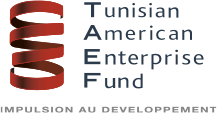
Written by : Tom Gibson
TASME practices an innovative investment strategy that could be called a hybrid of banking and venture capital, one designed specifically for the size and dynamics of the SMEs seeks.
According to recent surveys by the World Bank, in the Middle-East/North Africa region the average collateral required by banks for loans to businesses having 20 to 100 employees is over 200% of the amount borrowed, preventing tens of thousands of promising businesses from realizing opportunities for rapid expansion, long-term growth and participation in the development of a commercial middle class.
The answer to this vexing problem is not to blame commercial banks or try to coerce them to take greater risk than their boards, regulators, or depositors would endorse. Nor does the answer lie in conventional venture capital or private equity whose success ultimately depends on investing in the equity shares of businesses and then selling those businesses to third parties. According to the MENA Private Equity Association, in 2016 there were 1,314 new venture capital and private equity investments made in MENA, while there were only 14 exits in the entire region, down from 21 the previous year. Clearly, VC and PE are only reaching a minute fraction of MENA’s growth-oriented SMEs. While not a VC or PE fund, TASME is nonetheless a risk capital investor, meaning that TASME does not require 100% collateral and shares in the risk of its investees. But TASME avoids the VC/PE investor’s risk of investing in a good company while having a bad investment when there is no way to exit the investors equity.
What TASME does is shift the risk capital paradigm from equity to sales by providing each investee with a low-interest loan while sharing in a small percentage of the investee’s revenues. In this way, TASME is aligned with the interest of the SME entrepreneurs on the growth of their sales. TASME does invest a smaller amount in the equity of the investee, but the alignment is maintained by allowing the entrepreneurs to buy back TASME’s shares at a low price after the loan, interest and revenue participation are fully paid.
TASME’s portfolio investee’s see this as a way of maintaining their majority ownership of their businesses while avoiding the high interest payments that often kill young businesses in the early years of their business expansions.
Most often know as royalty-based investment or “revenue capital”, other investors in the region have taken a strong interest in following TASME’s lead. In Jordan alone, one SME fund is shifting its strategy to revenue capital while three other revenue capital funds targeting SMEs are currently raising capital. TASME is a promising and important pioneer in this innovative, business-friendly approach to growing MENA’s SME sector.




